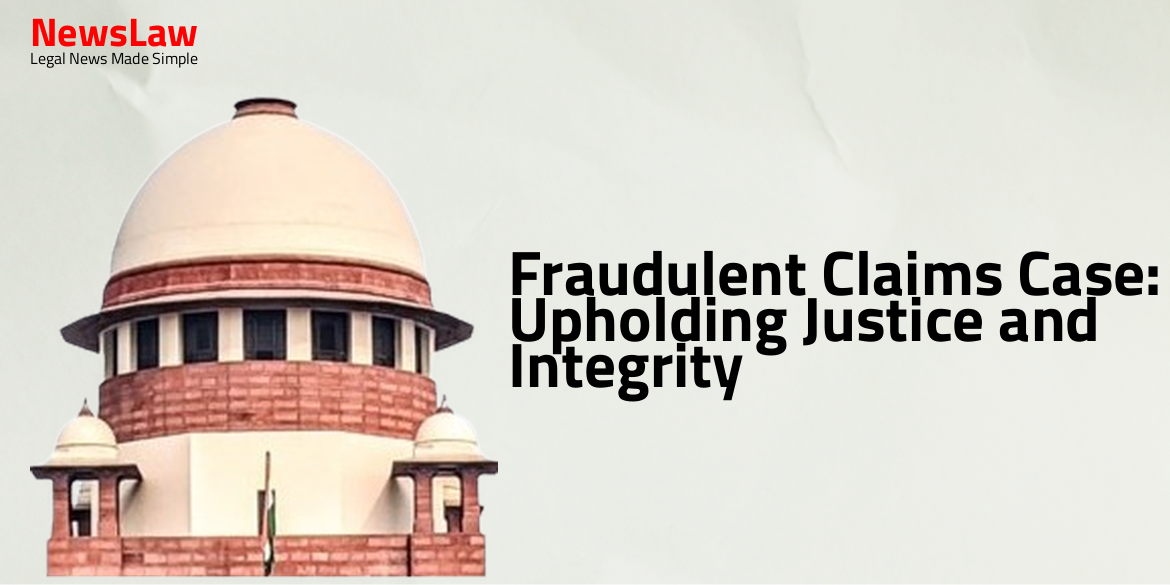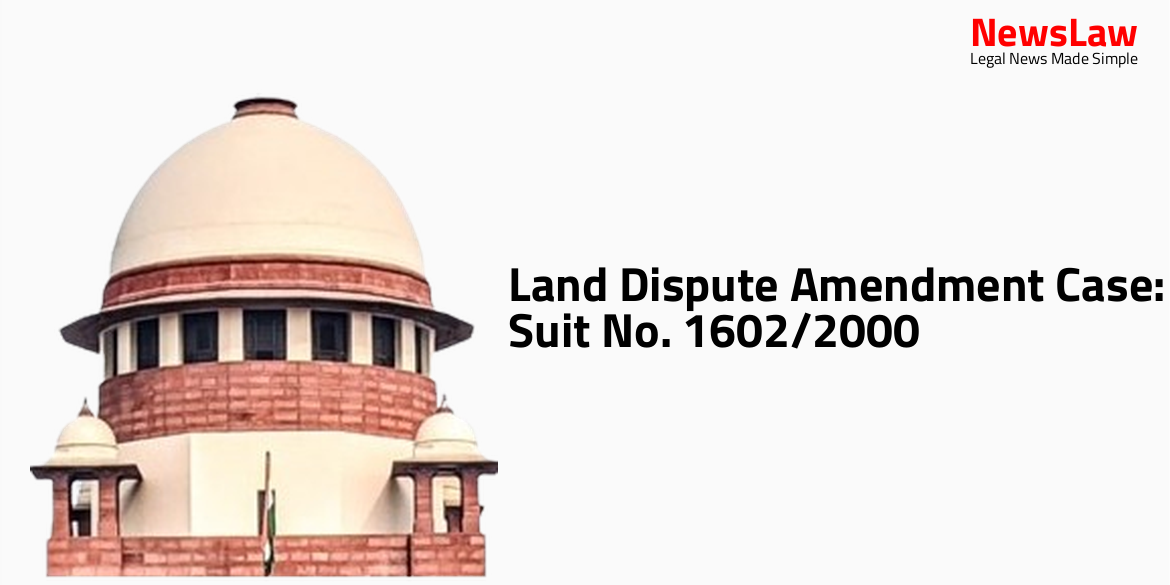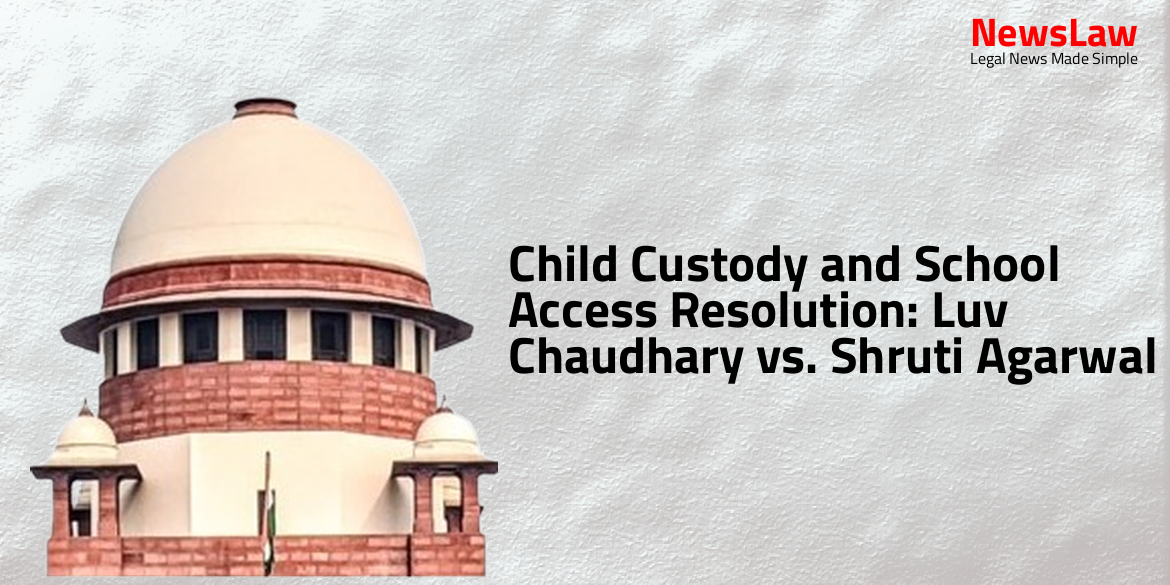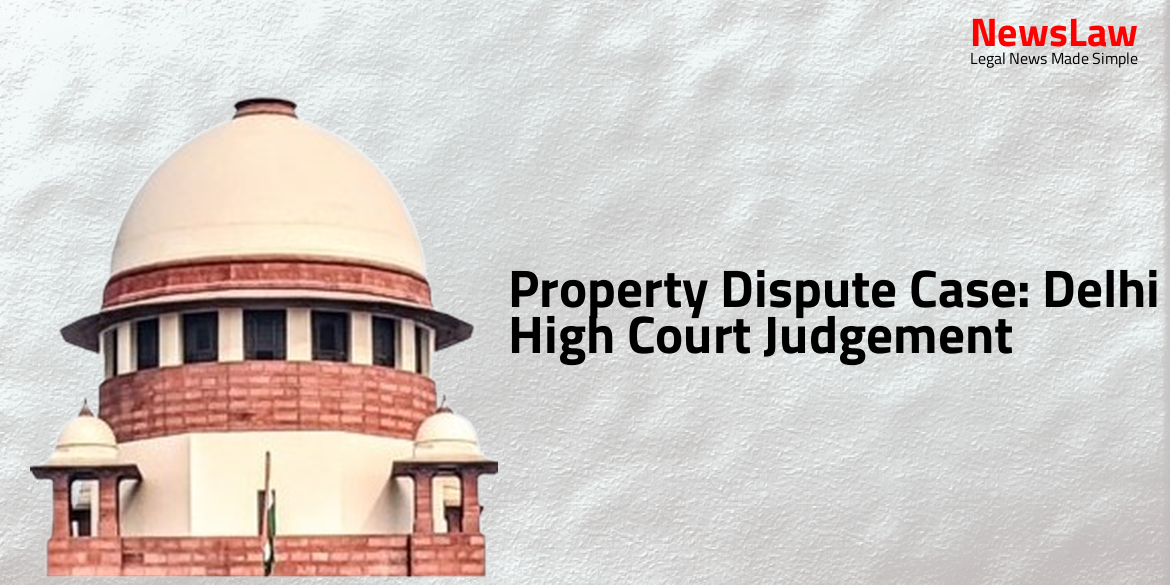In a significant ruling by the Delhi High Court, justice prevails in the fraudulent claims case. The Court’s decision marks a pivotal moment in ensuring integrity and honesty in compensation petitions, safeguarding the rights of victims affected by the accident involving a bus driver, Paramjit Singh. This judgment reinforces the importance of transparency and adherence to legal provisions in motor vehicle claims, setting a standard for future cases. We delve into the details of this crucial legal battle and the implications for claimants and the legal system at large.
Facts
- The accident took place on 13.07.2019, involving a bus driven by Paramjit Singh, resulting in casualties and injuries to passengers.
- An FIR under Sections 279/304-A/337/338 IPC was registered at PS Thanesar Sadar, Kurukshetra.
- The claim petition was filed on 22.04.2022, almost three years after the accident.
- Concerns were raised about the filing of fake claims under the Motor Vehicles Act, leading to the issuance of directions by the Hon’ble Supreme Court.
- Instances of fake claims being filed were reported in various districts, highlighting the need for prevention and investigation of such cases.
- Specific details about the driver, the owner of the vehicle, and the insurance company involved were provided.
Arguments
- Non-road accident injury-death converted into road accident claims
- Fraudulent implantation of vehicle
- False implantation of driver
- Claimant implantation
- Multiple claims at various fora at different territorial locations for compensation out of injury/death caused by the same accident
- Claim applications filed before various MACT Tribunals and authorities under the Employees Compensation Act, 1923
- Fake/fabricated insurance policies
- Fake/fabricated income documents/medical documents for exaggerated compensation
Analysis
- The Claim Petition was dismissed due to being filed after Two Years and Eleven Months of the accident in question without providing essential documents.
- The Court expressed suspicion regarding the correctness of the version presented as essential documents like Final Report/Charge-Sheet were not submitted.
- The Amicus Curiae provided thorough reports and suggestions to expedite the adjudication of motor vehicle claims.
- Several directions were proposed for implementation by police authorities, Claims Tribunals, and insurance companies to streamline the process.
- The Court emphasized the importance of following the mandated provisions by police authorities and Tribunals.
- Various cases of connivance, fake claims, and filing in multiple courts were highlighted as common malpractices in compensation petitions.
- The Court directed the implementation of stages in enforcing Section 158(6) of the Motor Vehicles Act for better regulation.
- Specific instances of fraudulent claims and fictitious accident scenarios were brought to light during the analysis.
- The judiciary’s role in ensuring the truthfulness of claims and handling compensation cases was emphasized.
- The police and Motor Accidents Claims Tribunals have not implemented the mandatory provisions of the Motor Vehicles Act.
- The Central Motor Vehicle Rules, 1989 prescribe the form of the Police Report required under section 158(6) of the Act.
- The Supreme Court directed all State Governments and Union Territories to ensure police compliance with Section 158(6) and Rule 150, with periodical checks by the Inspector General of Police.
- The importance of timely intimation of accidents to Claims Tribunals and Insurance Companies within 24 hours was highlighted, as per Section 158(6) of the Act.
- Concerns were raised about the diversion of compensation to unscrupulous individuals and the need to protect victims’ rights.
- An Amicus Curiae was appointed to assist the Court in finding solutions to these issues.
- The need for effective implementation of provisions to expedite compensation for accident victims was emphasized.
- The Supreme Court reaffirmed the mandate for meticulous compliance with the statute, urging action against non-compliance and erring officials.
- The police are required to notify the victim (injured) or the family of the victim (in case of death) about the first date of hearing set by the Tribunal.
- The notification should be sent to the driver, owner, and insurer as well.
- This step ensures that all relevant parties are informed and able to attend the hearing as necessary.
- All claimants confirmed on affidavit that they have not filed any petition elsewhere.
- Claimants are permanent residents of Delhi, confirming jurisdiction of the Tribunal.
- Non-compliance of Section 158(6) by the Investigating Officer does not prejudice the claimants’ pursuit of their claim petitions as per the law.
Decision
- Parties to appear before the Tribunal on 03.06.2024 for further hearing.
- Set aside 11 revision petitions filed.
- Requirement for necessary compliance stated.
- Decision of 2022 is overturned.
- No expression of opinion on case merits implied.
- Applicants/petitioners to submit all relevant documents by next hearing date.
- Matter remanded to the Tribunal for a fresh hearing and proceedings in accordance with the law.
Case Title: REKHA GUPTA Vs. PARAMJIT SINGH & ORS. (2024:DHC:3951)
Case Number: C.R.P.-154/2022



